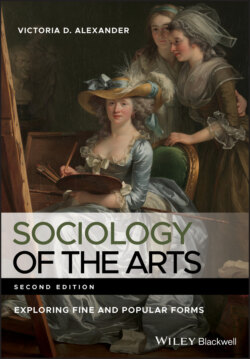Читать книгу Sociology of the Arts - Victoria D. Alexander - Страница 46
Cultivation Theory
ОглавлениеGerbner (1998) puts forward the notion of cultivation, which describes “the independent contributions television viewing makes to viewer conceptions of social reality” (p. 180). He argues that television became the central storyteller of the twentieth century (displacing communities and religious authorities). The stories matter, he argues, because they shape people’s perceptions of the world. He writes, “What is most likely to cultivate stable and common conceptions of reality is, therefore, the overall pattern of programming to which total communities are regularly exposed over long periods of time” (p. 179). Studies that use cultivation theory tend to compare people who watch a lot of television to those who watch much less television, looking for differences between the two groups.
Gerbner and his colleagues tracked the content of American television drama from 1969, including the number of violent incidents depicted to support their contention that how violence is depicted is very important:
The cultivation perspective has shown that television violence illustrates and provides lessons about power. Violence shows who’s on top and who’s on the bottom, who gets hurt and who does the hurting.
(Signorielli, 2003: 42)
American television drama suggests that white women are more likely than other people to be victims of serious crime such as murder; however, in the real world of America, men are more likely to be murdered than women, and black men more likely than white men (Parrott and Parrott, 2015). Gerbner and his team argue that television viewing (and the consequent consumption of skewed information in television stories) affects viewers’ perceptions. For instance, Gerbner (1995) argues that heavy television viewing leads people to feel insecure in their social environment:
Our analysis based on large national probability sample surveys indicates that long‐term, regular exposure to television tends to make an independent contribution to the feeling of living in a mean and gloomy world. The “lessons” range from aggression to desensitization and to a sense of vulnerability and dependence. (p. 73)
Gerbner (1998) highlights a series of studies suggesting skewed perceptions among heavy television viewers, about crime rates, how trustworthy people are, understandings of work roles, assumptions about gender roles and gender expression, and so on. Interestingly, Morgan (1989) suggests that television encourages people to hold multiple unexamined opinions, by showing that the more television individuals watch, the greater the degree of contradictory opinions they express in surveys.
